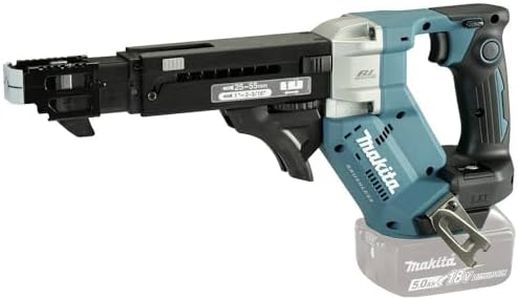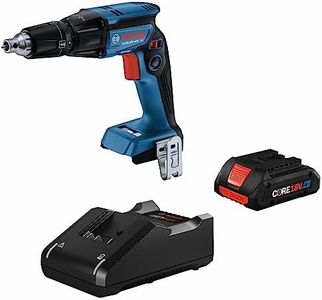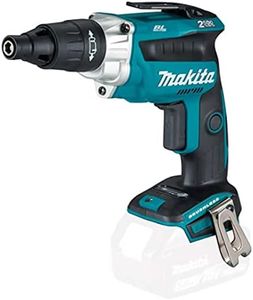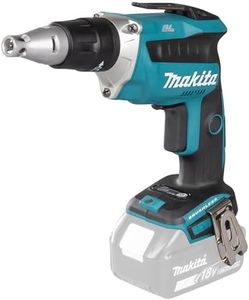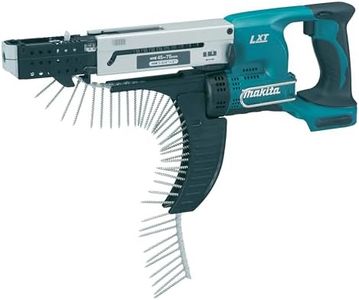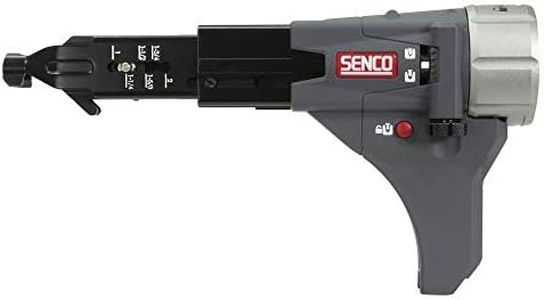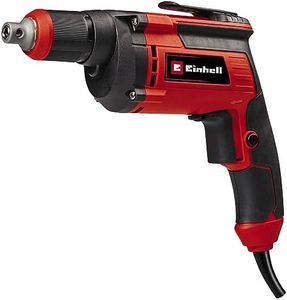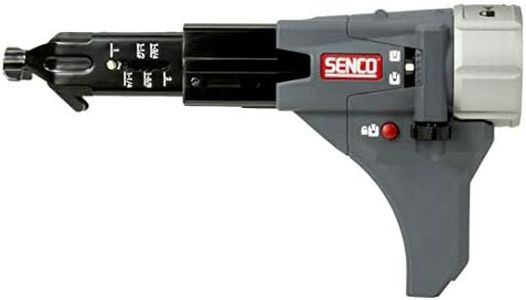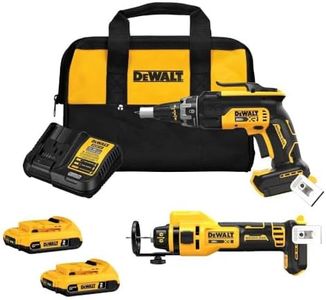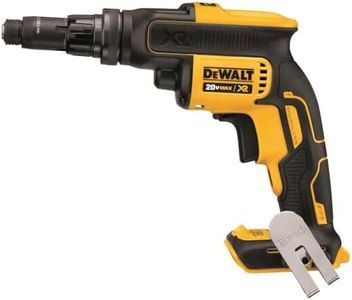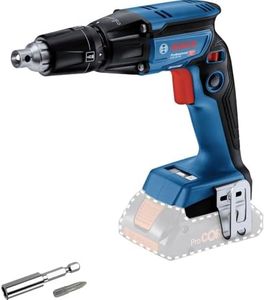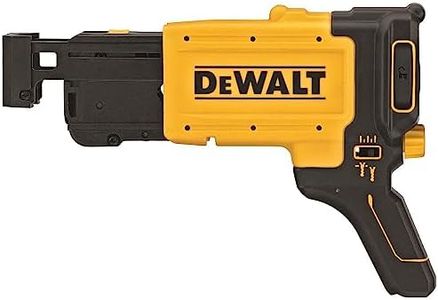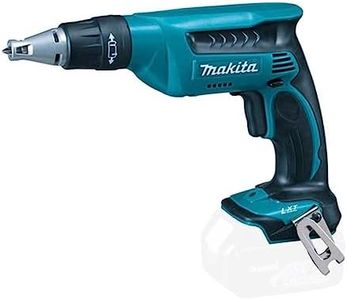We Use CookiesWe use cookies to enhance the security, performance,
functionality and for analytical and promotional activities. By continuing to browse this site you
are agreeing to our privacy policy
10 Best Collated Screw Guns
From leading brands and best sellers available on the web.Buying Guide for the Best Collated Screw Guns
When shopping for a collated screw gun, it's helpful to start by considering what types of projects you'll most often use it for. Collated screw guns are especially handy for repetitive tasks like drywall installation, decking, and subfloor work, where speed and consistency are important. The best choice will make your work faster and easier, while the wrong one might feel awkward or slow you down. Take time to think about the type of materials you'll be working with and how often you'll use the tool, as this can shape your priorities when comparing options.Power SourceThe power source for a collated screw gun can be either cordless (battery-powered) or corded (plug-in). This determines how portable the tool is and how long you can use it without stopping. Cordless models allow you to work away from power outlets and are more maneuverable, but you'll need to recharge or swap batteries. Corded models give consistent power for longer sessions, but limit your movement to the cord's length. If you need freedom to move around a large workspace or often work in areas without easy access to outlets, a cordless model is great. However, if you'll be working in one place for long periods, a corded screw gun might serve you better.
Screw Size CompatibilityScrew guns can handle different ranges of screw lengths and thicknesses. This is important because using the right screw size for your project ensures solid construction and prevents damage. Some screw guns are designed for smaller screws, typically used in drywall, while others can handle longer, thicker screws needed for subfloors or decking. Check the specifications for the supported screw size range. If you only work with drywall, a tool that supports smaller screws is fine. If you handle a variety of materials or more demanding projects, pick a screw gun with a broader compatibility.
Speed and Torque SettingsThe speed and torque of a screw gun determine how fast it drives screws and how much force it applies. Adjustable settings can help you match the tool to the task—higher speeds for driving lots of screws in soft materials, lower speeds and higher torque for tougher jobs. Some screw guns let you adjust these settings easily, while others may have a fixed speed and torque. For professionals or frequent users who work with different materials, adjustable speed and torque are helpful. If you'll be doing similar work most of the time, a fixed setting may be just right for you.
Collation TypeCollated screw guns use strips or coils of screws, which can be made of plastic or paper. The way screws are collated affects how easily the gun feeds them and how often jams occur. Some tools can use both types, while others are specific to one. If you already have a supply of a certain type, or if your local store stocks one more than the other, it can guide your choice. Also, think about how easy it is to load new strips, especially if you need to change them frequently on larger projects.
Depth AdjustmentDepth adjustment is a feature that lets you control how far the screw is driven into the material. This is crucial for getting a flush finish, especially in work like drywall installation. Some screw guns provide easy-to-use dials or controls for this, while others may require tools to adjust. If you work on different materials or want to switch between flush and countersunk finishes quickly, a screw gun with tool-free, precise depth adjustment can save you a lot of time and effort.
Ergonomics and WeightHow a screw gun feels in your hand — its weight, balance, and grip — affects how easy it is to use, especially over long periods. A lighter, well-balanced tool will reduce hand and arm fatigue. Some models have rubberized grips or special designs for comfort. If you plan on using the tool for extended sessions, comfort and ease of handling should be a priority. Try to imagine, or even test, how it feels to hold and operate before committing, as a comfortable screw gun can make a big difference in your productivity.
